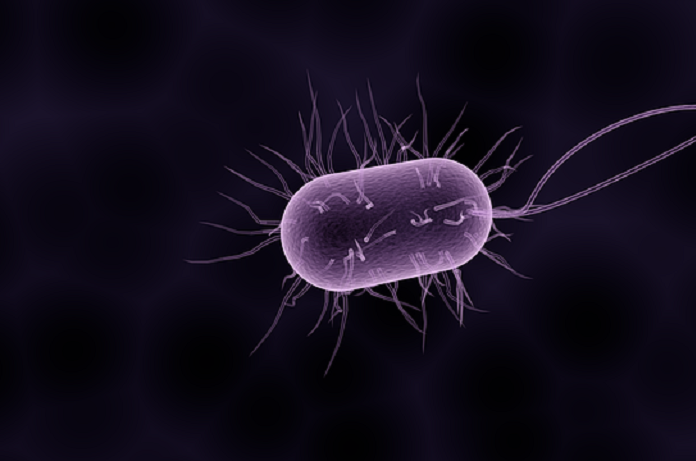We are what we eat; or as research now shows, we are also what our gut microbes eat.
Scientists have shown that a single addition to the diet of the roundworm makes it more susceptible to a drug that is commonly used to treat cancers in humans. The drug 5-fluoro 2’deoxyuridine (FUdR) has been used to treat patients suffering from cancers like colorectal cancer. FUdR is thought to exert its anti-cancer activity via inhibition of an enzyme involved in the biosynthesis of thymidine, one of the four nucleotides that make up our DNA. This biosynthetic pathway also utilizes metabolites such as folates (Vitamin B9) and the amino acid serine that are known to be obtained from our diet. Given the growing evidence of the role of the gut microbiota in mediating the effects of what we eat on our body, including the effects of therapeutic drugs, researchers at the University of Virginia have dissected the effects of dietary supplementation on the efficacy of drugs, in this case, FUdR. They used the common roundworm, C.elegans as their experimental organism, and have established a system to study the connections and their related effects that happen between diet, microbiota, drug, and the host. Their results were recently published in the journal, Nature Communications.
The scientists observed that addition of thymidine or serine to the diet of the roundworm made a previously tolerated dose of the drug FUdR into a toxic dose. For instance, the same dose of the drug does nothing on a normal diet but the addition of serine to the diet increased the toxicity of FUdR by 100 fold. This was explained by Wengan Ke, a graduate student and the lead author of the study, “The same dose of the drug that does nothing on the control diet kills the [roundworm] if a milligram of the amino acid serine is added to the diet”.
The microbiome is a very complex system, which makes dissecting the cause-and-effect kinds of interactions between the microbes and the host very difficult to study. The scientists in this study set up a simplified system using the roundworm. The diet of the roundworm is bacteria such as E.coli. Being able to independently manipulate the growth conditions of the bacteria and the roundworm allowed the scientists to uncover for the first time the metabolic workings behind the effect of dietary changes on the efficacy of the drug.
For instance, the scientists were able to show that while addition of thymidine or serine had similar effects on increasing the toxicity of the drug FUdR, the metabolic pathways leading to the common outcome were quite different. They also determined that the toxicity of FUdR in the roundworm is mediated via autophagy.
In addition to the contribution to our scientific understanding of the complex interactions between host and microbes, this study has major implications in tailoring chemotherapeutic dosages and better controlling its side effects. These findings could also explain the differences observed in patient responses to chemotherapy. The study suggests that in the future dietary influences and the role of the gut microbiota will also need to be examined when studying the efficacy of drugs.
The researchers note that their system is a highly simplified one, especially as the bacteria serve as both microbiota and food source in the roundworm. Humans in contrast, host more 1500 species and the composition of the microbiota varies between individuals. Thus the complexity of the interactions between drug, host, and microbiome is like to be ‘astronomical’ as noted by the researchers. As explained by Dr. Eyleen O’Rourke of the University of Virginia’s School of Medicine, “The potential of developing drugs that can improve treatment outcomes by modulating the microbes that live in our gut is enormous. However, the complexity of the interactions between diet, microbes, therapeutics and the host that we uncovered in this study is humbling.”
Written by Bhavana Achary, Ph.D
References:
Ke, W., Saba, J.A., Yao, C. et al. Dietary serine-microbiota interaction enhances chemotherapeutic toxicity without altering drug conversion. Nat Commun 11, 2587 (2020).
Press release – https://www.eurekalert.org/pub_releases/2020-06/uovh-dgm060520.php
Image by Raman Oza from Pixabay



